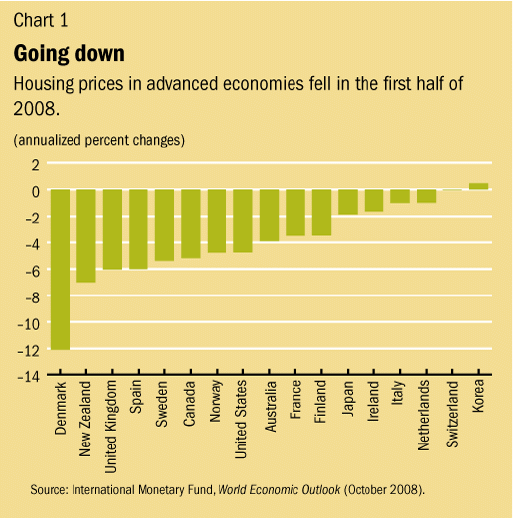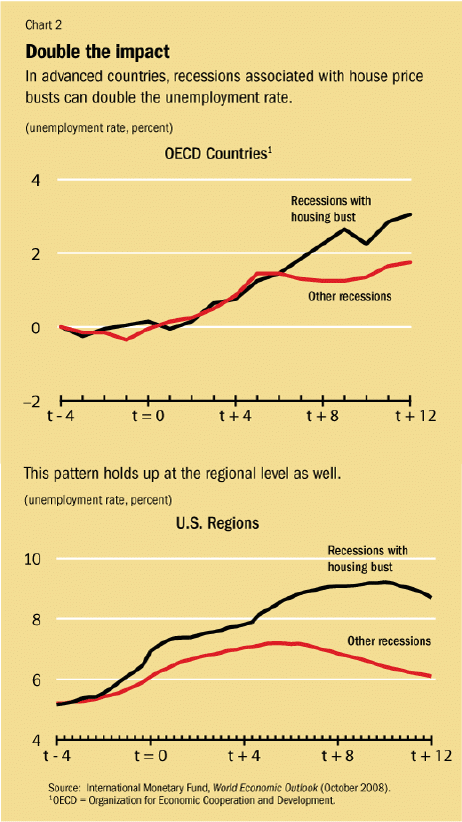
Typical street scene in Santa Ana, El Salvador. (Photo: iStock)
IMF Survey: House Prices Compounding Crisis
October 8, 2008
Housing prices have begun falling this year in several advanced economies (watch video on housing crisis).

Home prices in the United Kingdom have fallen by 6 percent this year (photo: Newscom)
World Economic Outlook
In real terms, and on a seasonally-adjusted basis, house prices fell in the first half of 2008 at an annual rate of 5 percent to 12 percent in Canada, Denmark, Spain, New Zealand, and the United Kingdom (see Chart 1).
Previous cycles
Between 1970 and 2005, the average house price cycle in advanced countries lasted about ten years, with an expansion phase of six years during which real house prices increased by about 45 percent. During the subsequent four-year contraction phase, real house prices declined about 25 percent, with the range of declines across countries varying from about 10 percent in the United States to over 30 percent in Japan and several European countries.

Economic impact
What are the consequences of the declines in house prices for the macroeconomy? Evidence suggests, not surprisingly, that the macroeconomic consequences are more adverse if they occur against the context of a weakening economy and tight credit conditions, which is likely to be the situation facing many countries at present.
Over the period 1960 to the present, recessions in advanced countries that are associated with house price busts and credit crunches are slightly longer and deeper than other recessions. The duration of a recession is more than one quarter longer in the case of a housing bust, total output loss during the recession is somewhat higher, and the unemployment rate increases notably more and for longer in recessions with housing busts.

Over the 12 quarters following the onset of a recession, the unemployment rate increases, on average, by 1.5 percentage points. But in recessions associated with house price busts, the increase in unemployment is 3 percentage points (see Chart 2, upper panel).
There is some evidence that this pattern holds up at both the national and regional levels. As shown in Chart 2 (lower panel), during regional recessions in the United States that are associated with a housing bust, the peak impact on unemployment is an increase of 4 percentage points, compared with an increase of 2 percentage points for all regional recessions.
Comments on this article should be sent to imfsurvey@imf.org







